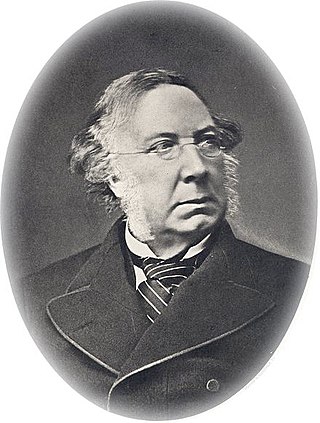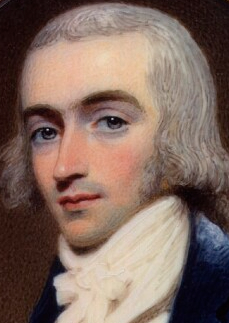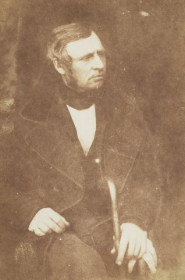
James Macpherson was a Scottish writer, poet, literary collector, and politician. He is known for the Ossian cycle of epic poems, which he claimed to have discovered and translated from Gaelic.

Henry Glassford Bell was a Scottish lawyer, poet and historian.

Malcolm Laing was a Scottish historian, advocate and politician.

Sir Thomas Craig of Riccarton was a Scottish jurist and poet.
Derick Smith Thomson was a Scottish poet, publisher, lexicographer, academic and writer. He was originally from Lewis, but spent much of his life in Glasgow, where he was Professor of Celtic at the University of Glasgow from 1963 to 1991. He is best known for setting up the publishing house Gairm, along with its magazine, which was the longest-running periodical ever to be written entirely in Gaelic, running for over fifty years under his editorship. Gairm has since ceased, and was replaced by Gath and then STEALL. He was an Honorary President of the Scottish Poetry Library, and a Fellow of the Royal Society of Edinburgh and the British Academy. In June 2007, he received an honorary degree from Glasgow University.

Robert Fellowes, LL.D. was an English clergyman, journalist and philanthropist.

Sneyd Davies was an English poet, academic and churchman, archdeacon of Derby from 1755.
This article is about the particular significance of the year 1733 to Wales and its people.

Sir John Carr (1772–1832) was an English barrister and (travel) writer.
John Campbell Colquhoun was a Scottish writer and politician.
John Bonar (1721–1761) was a Church of Scotland minister.
Robert Macfarlan (1734–1804) was a Scottish schoolmaster, notable as a writer, journalist and translator.

The General View series of county surveys was an initiative of the Board of Agriculture of Great Britain, of the early 1790s. Many of these works had second editions in the 1810s.
William Shaw (1749–1831) was a Scottish Gaelic scholar, writer, minister and Church of England cleric. He is known also as friend and biographer of Samuel Johnson. His 1781 paper on the Ossian controversy is still considered a good survey of critical points.
Josiah Walker (1761–1831) was a Scottish writer, from 1815 Professor of Humanity at Glasgow University. He is known as a biographer of Robert Burns.

John Cook (1807–1874) was a Scottish minister who served as Moderator of the General Assembly of the Church of Scotland for the year 1866/67. In common with other members of the ecclesiastical family of Cook, he was a strong supporter of the moderate party in the Scottish church.
John Clark M.D. (1744–1805) was a Scottish physician, known also as a medical philanthropist in Newcastle upon Tyne.
John Smith was a Scottish antiquarian and Gaelic scholar.
This page is based on this
Wikipedia article Text is available under the
CC BY-SA 4.0 license; additional terms may apply.
Images, videos and audio are available under their respective licenses.
![]() This article incorporates text from a publication now in the public domain : Stephen, Leslie, ed. (1887). "Clark, John (d.1807)". Dictionary of National Biography . Vol. 10. London: Smith, Elder & Co.
This article incorporates text from a publication now in the public domain : Stephen, Leslie, ed. (1887). "Clark, John (d.1807)". Dictionary of National Biography . Vol. 10. London: Smith, Elder & Co.







